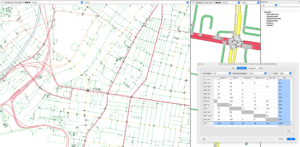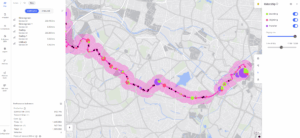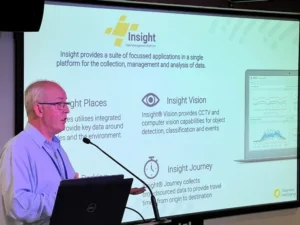Transport simulation experts Aimsun have announced they have completed a two year project to extract travel demand information from anonymised mobile phone records and integrate it into the Aimsun Next modelling platform.
Project BAMBOO involved using urban data from Santander, interurban on the the AP-7 highway and national across Spain. Aimsun says each provide different data distribution and technical challenges, as well as different mobility objectives. Mobile-phone provider Orange provided access to large-scale tailored data and stakeholders for each use case.
Working with Nommon Solutions and Technologies, the modellers worked on new methods and algorithms to improve demand generation from mobile phone data, whether aggregated Origin-Destination trip matrices or disaggregated using activity-travel diaries.
The modellers say they focused on overcoming the limitations associated with travel demand generation and representation in the context of dynamic traffic assignment, traditionally used in the sector to characterise demand derived on home-based surveys.
The company says the new demand characterisation offers richer and more reliable information for simulating more realistic traffic conditions. The new features resulting from BAMBOO are now implemented in Aimsun Next software, which Aimsun says is now the first transport simulation toolset specifically adapted to realise the full potential of massive, passively collected data such as cellular data, as opposed to competing solutions that were conceived to work with traditional demand data. This is particularly important for modelling new forms of mobility and the most recent approaches to traffic management, for which the current tools typically fall short due to the need for higher levels of disaggregation and behavioural insights.
























